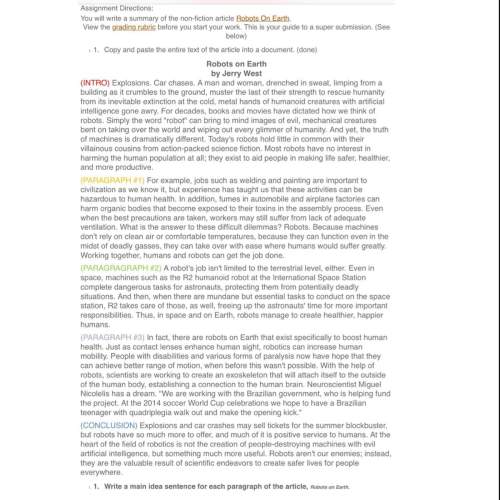
English, 27.09.2019 03:50 21121212cutecheytown
Can someone me in - american literature, reading informational texts
? ?
what claim does the author make about why people don't view piracy as theft in paragraphs 3–4 of the
article "battling the digital jolly roger"?
a. people don't view file sharing as theft, and continue to share digital files, thus, perpetuating the problem.
b. until the sopa law passes, sharing media cannot be considered illegal.
c. people don't know what file sharing means, so they don't know that it's wrong.
d. people don't care if it's illegal or not, because it's a cheaper way to share media.
11. how might the evidence the author provides in "the completely free market" affect the overall
argument being made?
a. the author uses outdated information to present his or her argument.
b. the author has never illegally downloaded music, so he or she doesn't understand the topic well enough to comment on it.
c. the author doesn't provide any real evidence of facts and figures; it's all opinion-based.
d. the author's evidence only comes from one source—an insider in the music industry—which makes the article biased

Answers: 1


Another question on English

English, 22.06.2019 01:50
Why college athletes should not get paid to play conclusion
Answers: 2

English, 22.06.2019 04:30
How does marc antony use the rhetorical triangle in his speech
Answers: 2

English, 22.06.2019 04:50
Read the passage, then answer the question that follows. no one could have seen it at the time, but the invention of beet sugar was not just a challenge to cane. it was a hint—just a glimpse, like a twist that comes about two thirds of the way through a movie—that the end of the age of sugar was in sight. for beet sugar showed that in order to create that perfect sweetness you did not need slaves, you did not need plantations, in fact you did not even need cane. beet sugar was a foreshadowing of what we have today: the age of science, in which sweetness is a product of chemistry, not whips. in 1854 only 11 percent of world sugar production came from beets. by 1899 the percentage had risen to about 65 percent. and beet sugar was just the first challenge to cane. by 1879 chemists discovered saccharine—a laboratory-created substance that is several hundred times sweeter than natural sugar. today the sweeteners used in the foods you eat may come from corn (high-fructose corn syrup), from fruit (fructose), or directly from the lab (for example, aspartame, invented in 1965, or sucralose—splenda—created in 1976). brazil is the land that imported more africans than any other to work on sugar plantations, and in brazil the soil is still perfect for sugar. cane grows in brazil today, but not always for sugar. instead, cane is often used to create ethanol, much as corn farmers in america now convert their harvest into fuel. –sugar changed the world, marc aronson and marina budhos how does this passage support the claim that sugar was tied to the struggle for freedom? it shows that the invention of beet sugar created competition for cane sugar. it shows that technology had a role in changing how we sweeten our foods. it shows that the beet sugar trade provided jobs for formerly enslaved workers. it shows that sweeteners did not need to be the product of sugar plantations and slavery.
Answers: 1

You know the right answer?
Can someone me in - american literature, reading informational texts
? ?
what c...
? ?
what c...
Questions


Health, 22.01.2020 16:31



Physics, 22.01.2020 16:31


Mathematics, 22.01.2020 16:31

Computers and Technology, 22.01.2020 16:31

Mathematics, 22.01.2020 16:31

Mathematics, 22.01.2020 16:31

Mathematics, 22.01.2020 16:31

Physics, 22.01.2020 16:31


History, 22.01.2020 16:31

Mathematics, 22.01.2020 16:31

History, 22.01.2020 16:31




English, 22.01.2020 16:31




